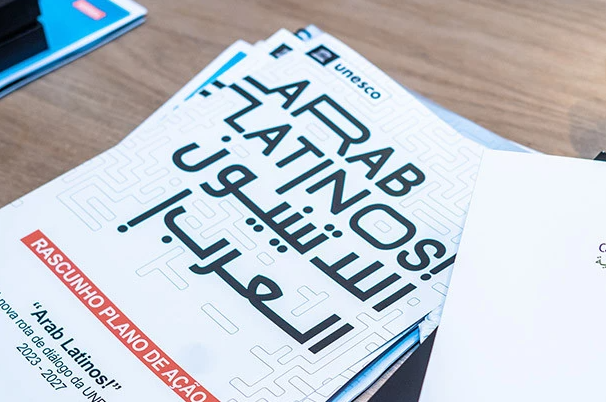São Paulo – Arab Latinos project received formal support from the United Nations Educational, Scientific, and Cultural Organization (UNESCO) Executive Board. The decision occurred in an assembly that brought together the institution’s member countries, and the project was supported unanimously. The initiative was created by the UNESCO secretariat and launched in 2022 at the headquarters of the Arab Brazilian Chamber of Commerce (ABCC) in São Paulo.
Arab Latinos celebrates diversity and aims to strengthen ties between regions and map contemporary intercultural dialogue between Latin America and Arab countries. The proposal was approved by acclamation at the institution’s 216th session.
Diplomat Sérgio Paulo Benevides, who is part of the Permanent Delegation of Brazil to UNESCO, explained what this represents. “It was approved by acclamation, which means all countries on the Council not only recognized but also celebrated the importance of Arab Latinos as a focal point for valuing the contribution migratory movements made to different societies, including in the sense of strengthening ties between different cultures,” said diplomat Benevides.
The vote also helped to recognize the project’s potential for promoting intercultural dialogue between Latin America and Arab countries. “It was an initiative by the ABCC and UNESCO that worked well. Within our perspective of uniting all Arabs in Latin America to study and discover new roots of this immigration to the region, it is a crucial attitude. Brazil has this leadership role in Latin America and the capacity and credibility to progress this project,” said Silvia Antibas, cultural director of the ABCC.
Benevides explained this translates to more significant support for the project, allowing it to gather more resources and efforts, making it more visible. “The project’s success also depends on mobilizing people and participants getting involved in the proposed activities. We were thrilled to see the Executive Council so strongly supported Arab Latinos,” concluded the diplomat.
For Geraldo Adriano Godoy de Campos, scientific coordinator of the project and International Relations professor at the Federal University of Sergipe (UFS), the initiative ratified by the member countries in an assembly brings extra significance. “That means formal political support now. It is another degree of institutionalization, which also fits the importance of intercultural dialogue,” he said.
Before the Executive Board meeting, Campos met with the Brazilian delegation at UNESCO on April 25, when they carried out an activity to publicize Arab Latinos. The event took place at the headquarters of UNESCO in Paris. It was attended by authorities and diplomats, in addition to actions such as a photographic exhibition with works and constructions by architect Oscar Niemeyer in Lebanon and the screening of a short film about the Brazilian emperor Pedro II’s trip to Arab countries.
Translated by Elúsio Brasileiro




